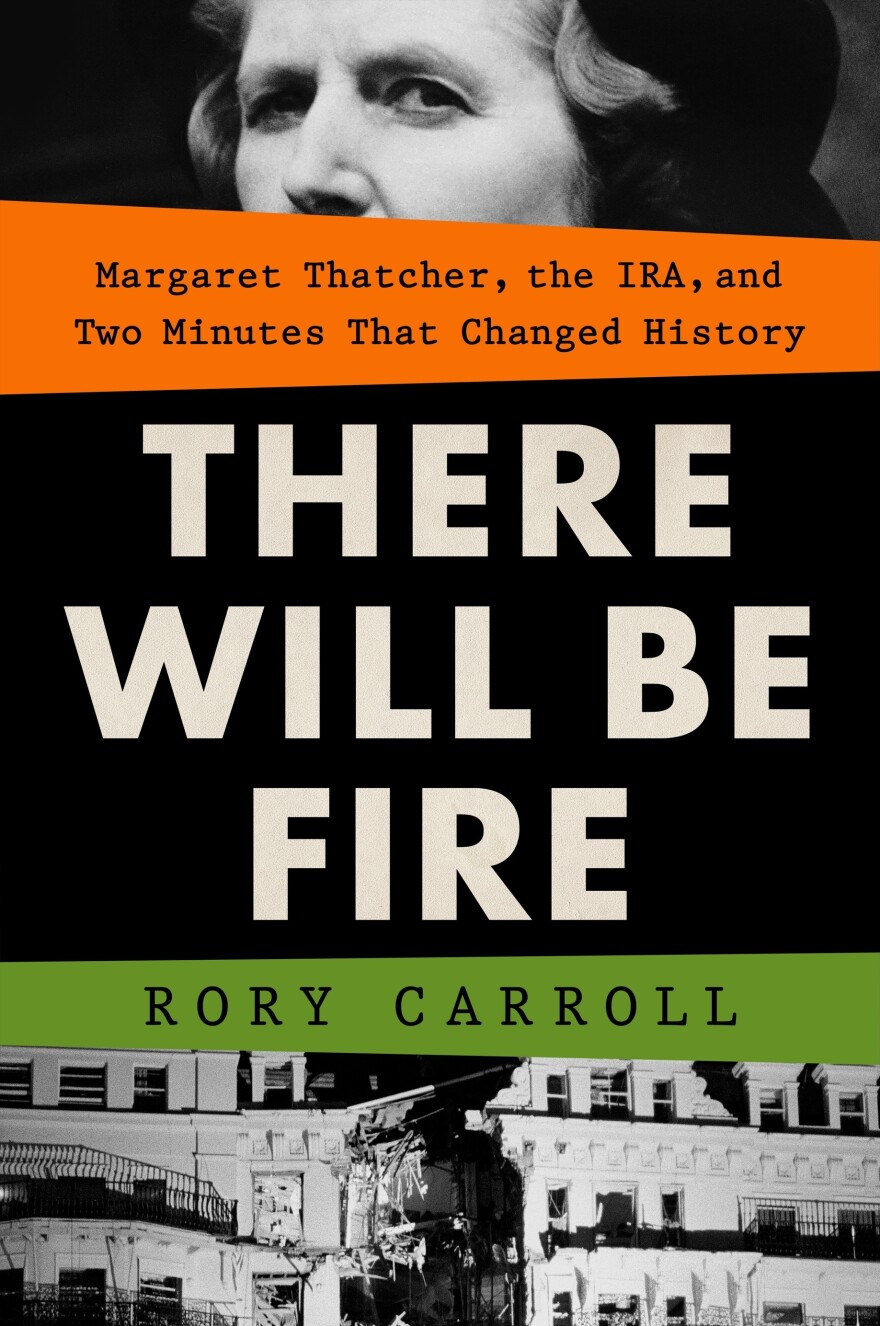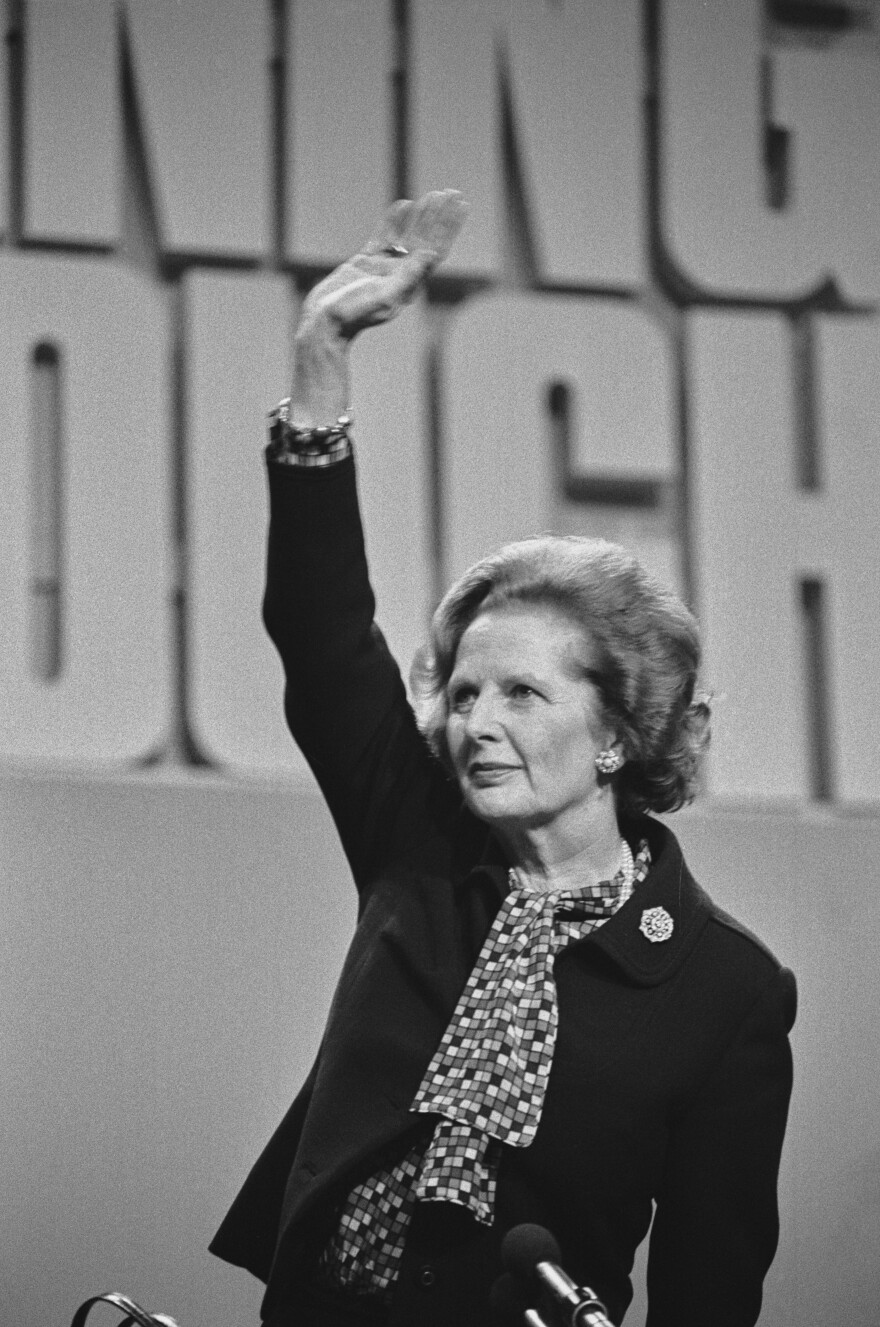What if?
That's the classic alternate history question that drives There Will Be Fire, an engrossing work of non-fiction by journalist Rory Carroll who's the Ireland correspondent for The Guardian newspaper.
What if, Carroll asks, Thatcher's movements had been different during two crucial minutes in the small hours of Oct. 12, 1984? What if she had lingered in the bathroom of her suite, which was several floors directly under a bomb the IRA had planted in the Grand Hotel in Brighton, England. What if that bomb, which did indeed explode and kill and grievously wound dozens of people, had claimed Thatcher among its fatalities?
Clearly, the publication of There Will Be Fire has been timed to coincide with the 25th anniversary this month of the Good Friday Agreement, which brought peace, however uneasy, to Northern Ireland. Carroll says that if Thatcher had been killed by the IRA, that peace accord might very well not have happened.

There Will Be Fire reads like a political thriller, with deep dives into the backgrounds of the IRA operatives and extensive accounts of investigations by detectives and explosives experts from Scotland Yard and other government agencies. If comparisons to a suspense story like Frederick Forsyth's The Day of the Jackal are inevitable, so, too, is a comparison to Patrick Radden Keefe's spectacular 2019 book, Say Nothing, about the IRA abduction and disappearance of a mother of 10 in 1972.
Both writers focus on discrete acts of violence as an entryway into a more expansive account of "The Troubles" — Northern Ireland's bloody struggle for self-determination. Keefe is a flat-out master storyteller: His book's title, Say Nothing, is from a poem by Seamus Heaney and Keefe's own investigative writing has a rare poetical resonance to it. Carroll's writing style is more methodical, diligently layering detail upon detail, much in the manner of one of the Scotland Yard investigators he profiles here — a fingerprint expert named David Tadd.
In the era before DNA testing, Tadd and his team routinely sifted through bomb blasts and other crimes scenes for up to 15 hours at a time, trying, as Carroll says, "to match a smudge of a thumb to a name in Scotland Yard's vast archive of terrorist suspect files." Tadd and his team pretty much did just that — cracking the identity of Thatcher's would-be assassin — all without the aid of computers.
The centerpiece tale here of Thatcher's near-assassination needs little embellishment to be riveting. In the wake of its successful assassination of Lord Mountbatten in 1979 and subsequent bombings, like that of Harrods department store in 1983, which brought the war to England, the IRA resolved to assassinate the sitting prime minister. In their eyes, Thatcher was the most reviled British leader since Cromwell.

The occasion would be the Conservative Party Congress, scheduled for October 1984 at the seaside resort of Brighton, where Thatcher and her cabinet would be staying at the Grand Hotel, an imposing Victorian structure. Nearly a month earlier, Patrick Magee, an IRA bomb expert nicknamed the "Chancer" — in recognition of the risks he took — checked in and spent three days in room 629, building a bomb. He hid it in a detachable panel under the bathtub and set the timer to go off in 24 days, six hours, and 36 minutes.
The explosion itself was just the spark. The real weapon would be the hotel itself, its bricks, stone, marble, and glass unloosened from 120 years of compact solidity and turned into a great, sweeping avalanche.
When the bomb went off, one of the hotel's rooftop chimneys — acting "[l]ike a monstrous guillotine [as it] sliced" its way through "to the ground floor" — veered sideways. That meant it shattered, not Thatcher's bedroom, but her bathroom suite, which the night owl prime minister had left just two minutes earlier. The next morning, amidst the carnage, the Iron Lady gave her conference speech as planned. As Carroll comments, "Even those in Britain who loathed her were awed."
In his copious "Acknowledgements," Carroll cites interviews with retired police officers, soldiers, politicians and former IRA members, including Magee, whom he says "was guarded but gracious." Magee's capture, which is another breathless story here, resulted in a sentence of eight life terms; he served 14 years before he was released under conditions of the Good Friday Agreement; the very same agreement Thatcher's assassination might have imperiled. Carroll, in his understated manner, lets that irony of history speak for itself.
Copyright 2023 Fresh Air. To see more, visit Fresh Air.



